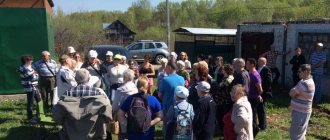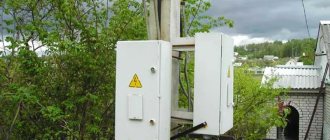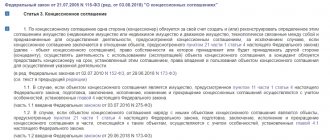According to data for 2021, more than 70 billion people have suburban land plots in Russia. For the convenience of organizing activities, all summer residents unite into dacha non-profit organizations, one of the varieties of which is dacha non-profit partnership (DNP). Is it profitable to organize a business on its basis? First of all, it is important to understand the specifics of the activities of this structure.
- DNP - organization of dacha activities
- Business options within the framework of DNP
- Advantages and disadvantages of business based on DNP
Homeowners Association Forms
In January 2013, a law was published and approved in Russia covering the issues of non-profit associations between individuals. It covers in detail the topic of dacha farming, gardening and other associations. The new document states that there are 3 forms of associations between homeowners.
- DNT, meaning “dacha non-commercial farm”.
- DKP: stands for “dacha (gardening or horticultural) consumer cooperative.”
- DNP (decoding - “dacha, horticultural or gardening non-profit partnership”).
Each of the three associations is created exclusively on a voluntary basis between individuals in order to provide support in legal and everyday matters to all members of the association.
Why become part of a partnership
It is not difficult to determine the benefits of this form of interaction. The bottom line is that a person who is the owner of a specific piece of land becomes part of an organization (legal entity) that has significantly greater resources, connections and capabilities than any of its members individually. As a result, the entire legal and material potential of the partnership is used to achieve goals beneficial to all members of the association. This is what DNP is and participation in it.
It is also worth noting that such an organization, in order to achieve its goals, can become an investor in partnerships and a participant in business companies. If necessary, it is even possible to create other non-profit organizations, as well as participate in unions and associations of legal entities.
DNP section
Dacha non-profit partnerships are created on land plots, which can be of two types:
- agricultural land (AAL);
- territory of an existing settlement.
These types of lands constitute a DNP site. Let's take a closer look at what this is. Lands with the status of SNK do not belong to any settlement. Development of this site is possible if permission is given to use this land for summer cottage construction. The free territory of a settlement is given for specific purposes: the development of villages, towns or other populated areas. Official development permission for this site can be obtained if it is assigned the status of a residential zone. Such territory is most attractive for building a house, cottage or creating a multifunctional residential complex there. Currently, in the real estate market, the main part of the DNP is created on agricultural lands.
Property Owners Association
The Civil Code of the Russian Federation establishes that non-profit organizations can be created, including in such an organizational and legal form as TSN, which recognizes voluntary associations of real estate owners created by them for joint ownership, use and, within the limits established by law, disposal of property (things) ), by virtue of the law, being in their common ownership or in common use, as well as to achieve other goals provided for by law. Real estate is premises in a building, including in an apartment building, or in several buildings, residential buildings, garden houses, garden or vegetable plots of land, etc.
So, TSN:
- corporate (membership-based) non-profit organization;
- founders are citizens;
- created on a voluntary basis;
- is not liable for the obligations of its members, TSN members are not liable for its obligations;
- The bodies of TSN are: the general meeting of TSN members (supreme body), board (permanent collegial executive body), chairman (sole executive body).
When analyzing the legal regime of TSN's property, it is necessary to take into account that TSN has the right to own property, with the exception of common property (which TSN only manages and maintains). Shares in the right of common ownership of common property belong to the owners of real estate objects.
As noted above, the legal status of certain types of TSN is established both in the Civil Code of the Russian Federation and other laws.
Accounting support
Zero 1500 rub. Activity 3500 rub. Activities + Salary 5000 rub.
• Personal accountant • Possibly remotely • 12 years of experience • 1000+ NGOs • All forms • Grants
Call your accountant right away
*The cost in Moscow and Moscow Region, St. Petersburg and Leningrad region is respectively: 2000, 5000, 7000 rubles
Call
Operating principle of the DNP
Homeowners' associations have their own structure and a specific work pattern. The DNP (stands for dacha non-profit partnership) has a supreme governing body, which is the general meeting of members. The activities of the dacha association are controlled by the specified body. The General Meeting of Members resolves the following issues:
- making necessary changes to the charter;
- election of the executive body (collegially and individually);
- making decisions regarding the reorganization (liquidation) of the DNP;
- resolving the issue of formation and use of the company's property;
- making a decision on the acquisition of a site that will have the status of public property, and other issues.
Vital issues of society are accepted exclusively by its highest governing bodies. To control the financial (economic) activities of the association, an audit commission is created in it.
Membership in the DNP
When it comes to such a phenomenon as the territory of the DNP, it is initially assumed that the number of partnership members will be limited. But the question is who can become part of such an organization.
The key requirements are that the applicant must be a citizen of Russia, be over the age of 18, and be the owner or co-owner of a land plot. The latter should, naturally, be located in an area of interest to the partnership. In this case, the presence of unfinished buildings or their absence does not play a significant role.
Also, a future member of the DPP is obliged to officially acknowledge his agreement with all the provisions set out in the charter and pay an entrance fee.
According to civil law, participants in a dacha partnership can be the heirs of members of the DNP, as well as those citizens who received land on the territory of the organization as a result of the purchase and sale procedure, donation or other legal means.
As for the entry into force of the rights of the founders of the partnership, they are considered part of the association after its state registration is completed. All those wishing to join the DPP are accepted on the basis of a decision of the meeting of authorized members of the partnership. Each of those accepted must receive a membership card within three months.
Advantages
Having learned the principle of operation of the DNP, what it is and what its functions are, it is necessary to clarify its main advantages. The main advantage of a dacha non-profit partnership is the fact that all participants in society combine their efforts to achieve a common goal. Here, each member is directly involved in resolving issues related to the activities and development of the village. With proper drafting of the Charter, negative consequences in the activities of the DNP can be completely avoided. An undeniable advantage of the partnership is the fact that its members have the opportunity to independently choose the operating organization. This may be a single company performing certain types of work, or a number of firms specializing in a specific area.
How does DNP differ from individual housing construction?
You can choose not to become a member of a partnership, but to obtain permission for individual housing construction. In this case, your site can only be located in a populated area. Purchasing an individual housing construction plot gives you the right to registration and a greater degree of freedom than in the case of membership in the DNP. But the price of the plot will be noticeably higher.
You will have to organize your daily life yourself: cleaning the territory, removing garbage, connecting water supply and electricity - everything falls on your shoulders. There is one more disadvantage - the land tax in the case of individual housing construction is higher than in the case of a partnership.
Purpose
A dacha non-profit partnership is considered the most convenient form of organization. To prove this, it is necessary to understand what purpose DNP has. Let's look at what this is in more detail. The partnership has one main goal - to provide legal and everyday assistance to all members of society. All important decisions here must be agreed upon with the members of the association, which eliminates the possibility of negative consequences.
In addition, the DNP has the right to carry out commercial activities. But here it is important to observe one condition: all profits received from commercial activities must be directed to meeting the needs of the dacha non-profit partnership. Associations of this form can acquire and also exercise property (non-property) rights; act as a plaintiff or defendant in courts.
Charter
The activities of a non-profit organization as such without a full-fledged charter are not possible. For this reason, this document is also drawn up when forming a dacha partnership. It should contain sections that can provide complete information on the following categories:
- General provisions. All information about the organization (basis for activity, name, location, etc.).
- Legal status of a partnership: what it can and cannot do under the law.
- Property, its acquisition and disposal.
- Goals and subject of activity.
- Conditions and features of membership in the DNP.
- Contributions. Here it is worth considering all their types, methods of transferring finances to the organization, as well as fines for non-payment, etc.
- Membership in a dacha association. Under what conditions are participants accepted, what can they expect after a positive decision, and what does exit from the structure look like.
- The charter of a dacha non-profit partnership should also include information about the features of managing the dacha and key activities in particular.
- It is also worth touching on issues such as accounting, record keeping and reporting.
As final information, you need to set out a scheme for the reorganization and liquidation of the partnership, if necessary.
The principle of creating a DNP
To create a dacha non-profit partnership, you need to know the general principles of establishing non-profit organizations. First you need to decide on the location of the company. It was mentioned above for what purposes the DNP land is used and what it is. The company can be created on an agricultural plot or on the territory of an existing settlement. To establish a DNP you will also need:
- decide on the name of the organization;
- clarify the purpose of its creation;
- collect passport data from all founders;
- pay the state fee;
- make an archival copy of the new Charter.
The number of members of a dacha non-profit partnership should not be less than three people.
About dacha non-profit partnerships (DNP)
The activities of dacha non-profit partnerships (DNPs) are already the talk of the town, simply fleecing their members who are ignorant of the law, whose funds are a source of not only illegal enrichment for the leadership of these associations, but also bribes to officials.
According to one of the instructions, fulfilling the wishes of the principal, I began to explore the possibility of taking measures to liquidate such a DPP, created back in 2006.
The initial data that I considered important for decisions in this direction was that the owners of land plots purchased for individual housing construction (IHC) were fraudulently involved in the DNP.
The deception was that representatives of the local administration informed them of the need to build communications in the settlement at their own expense, which is provided for by the law on DNP. At the same time, according to local regulations, these citizen-owners were exempted from equity participation in the construction of utilities, the construction of which was to be carried out at the expense of the local budget. This is the first one.
Second. The purpose of creating the DNP, as follows from its Charter, did not comply with the Federal Law of April 15, 1998 No. 66-FZ “On gardening, gardening and dacha non-profit associations of citizens.” This Charter did not say anything about the purposes of exercising their rights to receive dacha land plots.
In addition, the DNP was not allocated land in the manner prescribed by the said law. Finally, the law was broken during the reorganization of the DPP. He also proceeded from the fact that the violations of the law cannot be eliminated. As a result, a complaint was born to the local prosecutor. No answer yet. There is also no particular hope of resolving the issue in favor of the principal for known reasons of corruption.
The purpose of this publication is to provide colleagues with information on this kind of issues for a possible response; my second goal is to obtain additional arguments for a second appeal. One head is good, as we know, but many are better.
I deliberately do not publish in the “Rejoice for Me” section, because I consider the participation of colleagues in the search for legal arguments more important than advertising success (and this, in fact, is important, but not for me).
The specific reasoning behind the appeal to the prosecutor, executed on behalf of the principal, was as follows.
***
“...The activities of the DNP were regulated by the Federal Law of April 15, 1998 No. 66-FZ “On gardening, gardening and dacha non-profit associations of citizens,” which in this case was applied incorrectly; the DNP “N” was created and operates illegally.
This partnership is not an association of citizens to run dacha farming.
This conclusion is supported by the fact that the goals of its creation specified in the Charter of the DPP did not comply with the law.
According to clause 1 of Article 4 of the Federal Law of April 15, 1998 No. 66-FZ (as amended on November 2, 2004, on July 1, 2011) “On gardening, gardening and dacha non-profit associations of citizens,” citizens, in order to exercise their rights to receive dacha land plots, ownership, use and disposal of these land plots, as well as in order to meet the needs associated with the implementation of such rights, dacha non-profit partnerships could be created.
Paragraph 1 of the Charter, approved by the general meeting of members of the DNP “N” on August 11, 2011, contrary to the requirement of the law, states that the DNP “is created in order to exercise its rights to receive, own, use and dispose of land plots belonging to its members, as well as in order to meet the needs associated with the implementation of such rights.” The word “dacha”, as can be seen, is not mentioned in the Charter.
Meanwhile, non-profit organizations whose activities were regulated by Part 2 of Art. corresponded to the goal setting specified in the Charter. 1 of the Federal Law of January 12, 1996 No. 7-FZ (as amended on July 18, 2011) “On Non-Profit Organizations”, according to which this Federal Law was to be applied to all non-profit organizations created or being created on the territory of the Russian Federation, insofar as otherwise is not established by this Federal Law and other federal laws.
And on the other hand, according to clause 3 of article 1 of the last law, at the time of approval of the last Charter, it did not apply to consumer cooperatives, homeowners' associations, gardening, gardening and country non-profit associations of citizens (clause 3 as amended by the Federal Law dated November 29, 2007 No. 278-FZ).
If we talk about the Charter of the DNP “N” from the time of its first registration in 2006, then according to existing judicial practice, legal relations even at that time with a non-profit organization, when neither it nor its members had the goal of citizens exercising their rights to receive dachas land plots, ownership, use and disposal of these land plots, as well as the purposes of meeting the needs associated with the implementation of such rights, could not be regulated by the Federal Law of April 15, 1998 No. 66-FZ “On horticultural, gardening and dacha non-profit associations of citizens” 1.
If we are talking about me and other citizens, then we at that time, as well as now, even as members of the DPP, did not have such a goal, since both I and the others were owners of land plots, land category: lands of settlements , permitted use: individual housing construction. We are also the owners of residential buildings located on the plots. Thus, they never thought about any “dacha” plots; they were never concerned with the goals of their arrangement.
Our legitimate membership in the DNP was also excluded because in relation to land plot No. 50:N with an area of 25.4 hectares within the boundaries of the village of X, which existed as an object of law until 2004, an agricultural use zone was not established.
Art. 35 of the Civil Code of the Russian Federation dated December 29, 2004 No. 190-FZ (as amended on December 31, 2005) provides that the territorial zones established within the boundaries of populated areas could include zones of agricultural use (including zones of agricultural land), as well as zones occupied by agricultural objects and intended for dacha farming and gardening.
In accordance with Art. 85 of the Land Code of the Russian Federation dated October 25, 2001 No. 136-FZ (as amended on December 31, 2005), land plots within agricultural use zones in settlements - land plots occupied by arable land, perennial plantings, as well as buildings, structures, and structures for agricultural purposes , - are used for the purpose of conducting agricultural production until the type of their use changes in accordance with the master plans of settlements and the rules of land use and development.
In accordance with the General Plan of Settlements and the Rules for Land Use and Development of the Urban District, this territory is a residential development area.
Legally significant in this part is the fact that DNP “N” did not allocate a land plot for gardening and dacha construction in the prescribed manner, and its members did not allocate their land plots on the lands of settlements with VRI “for individual housing construction” into a single plot for dacha needs were not combined.
The DNP was also illegally created for other reasons.
The owners of land plots for individual housing construction who became members of the DNP, the DNP itself, as a legal entity, were not allocated a land plot in the prescribed manner for dacha construction. The territory, which is illegally considered the territory of the DNP, has been cadastral quarter No. 50:V of the individual residential development of the village X since 2004, while the DNP was established 2 years later - in 2006.
The procedure for allocating land plots for dacha farming was regulated by Art. 13.14 of the Federal Law of April 15, 1998 (as amended on November 2, 2004) No. 66-FZ “On gardening, gardening and dacha non-profit associations of citizens”, according to which procedures were carried out for the allocation of land by local government bodies at the place of residence plot for free, transfer of the allocated land plot to citizens.
No other procedure for providing citizens with agricultural land plots for these purposes was provided.
For owners of land plots for individual housing construction acquired from a private individual, before the creation of the DNP and without any connection with the DNP, a different nature of land use was established, which does not comply with the provisions of Federal Law No. 66-FZ.
Thus, according to the latest law, the owners of land plots purchased for individual housing construction could not be members of the DPP. Their legal relations, accordingly, should have been regulated not by this law, but by the Civil Code of the Russian Federation, the Land, Housing, Town Planning Codes of the Russian Federation, and other legislation.
***
The first paragraph of the DNP Charter indicates the alleged reorganization of the non-profit partnership (NP) “L” for the organization of individual housing construction in the form of joining the NPP “N”, and therefore the termination of NP “L” as an independent organization.
The reorganization was carried out illegally.
According to Art. 29 of the Federal Law of January 12, 1996 No. 7-FZ “On Non-Profit Organizations”, the exclusive competence of the highest management body (the general meeting of members for a non-profit partnership) included making decisions on reorganization.
There were no decisions of the general meeting of the NP regarding reorganization by joining the DNP “N”. In this regard, the entry into the Unified State Register of Legal Entities “NP” “L” that Minutes No. 1 of the General Meeting dated February 13, 2011 made a decision to begin the reorganization procedure in the form of affiliation (clauses 131-137) does not correspond to the actual circumstances, since the meeting there were no members of “NP” “L” dated February 13, 2011 with such a decision.
After the creation of the DNP “N” there was not a single meeting of members of the “NP” “L”, in which the 26 citizens who were accepted as members of the NP at the general meeting of 02/28/2006 would participate.
According to Article 21 of the Federal Law of April 15, 1998 No. 66-FZ “On horticultural, gardening and dacha non-profit associations of citizens,” the exclusive competence of the highest governing body (the general meeting of members of the dacha non-profit partnership) included making decisions on reorganization.
In accordance with Article 39 of the latest law, the reorganization of a dacha non-profit association (merger, accession, division, spin-off, change of organizational and legal form) is carried out in accordance with the decision of the general meeting of members of such an association on the basis of the Civil Code of the Russian Federation, the said Federal Law and other federal laws (clause 1, article 39).
When reorganizing a horticultural, gardening or dacha non-profit association, appropriate changes are made to its Charter or a new Charter is adopted (clause 2 of Article 39).
The transfer act or separation balance sheet of a horticultural, gardening or dacha non-profit association is approved by the general meeting of members of such an association and is presented together with the constituent documents for the state registration of newly emerged legal entities or for amending the charter of such an association (clauses 3, 4 of Article 39).
There were no general meetings declared in the extract from the Unified State Register of Legal Entities “NP” “L”, as well as in the extract from the Unified State Register of Legal Entities DNP “N”.
No one discussed the transfer deed or separation balance sheet with the members of the NP and DPP and approved their decision.
The transfer deed dated 02/13/2011, specified in clause 154.155 extract of the Unified State Register of Legal Entities DNP “N”, signed by V.T. Ivanov in a single person, since he was the chairman of both NP “L” and DNP “N”. There is no information about the transfer act in the extract of the Unified State Register of Legal Entities of NP “L”, since according to this extract, the merger of the NP into the DNP did not take place in 2011, which means that there could be no transfer act or separation balance sheet, as well as entries about them in the Unified State Register of Legal Entities.
In this regard, the entry on the transfer deed, in paragraphs. 154.155 of the Unified State Register of Legal Entities DNP “N” is a forgery.
There was also no general meeting of DPP members to approve the new Charter, the minutes of which No. 11 dated September 14, 2011 are indicated on the title page of the latest version of the DPP Charter.
In 2011, there was a single meeting of members of the DPP, based on the results of which protocol No. 9 of December 18, 2011 was drawn up.
Minutes No. 11 were drawn up based on the results of the general meeting of members of the DPP, which took place only on January 25, 2014.
In this regard, the Minutes of the general meeting of members of the DPP No. 11 dated 09/14/2011 and the Charter dated 09/14/2011, transferred by the chairman of the DPP V.T. Ivanov to the registration authority, are deliberately forged documents.
Registration entries entered into the Unified State Register of Legal Entities (items 168-170 of the Unified State Register of Legal Entities of the DNP on the minutes of the general meeting of members of the DPP “N” No. 11 dated 09/14/2011, at which the Charter of the DNP dated 09/14/2011 was allegedly approved (items 173- 174 extracts from the Unified State Register of Legal Entities (DNP) are invalid entries).
***
The state registration of the allegedly completed reorganization through the merger of the NP with the DNP is also illegal.
According to Part 8 of Art. 39 of the Federal Law of April 15, 1998 No. 66-FZ “On horticultural, vegetable gardening and dacha non-profit associations of citizens,” reorganization in the form of affiliation could only be accomplished by merging a horticultural, vegetable gardening or dacha non-profit association with another horticultural, vegetable gardening or dacha non-profit association.
The non-profit partnership for organizing individual housing construction (NP) “L” was not a dacha non-profit association, since it united individuals who became owners of land plots outside the rules established by Law No. 66-FZ. This is the first one.
Second. According to parts 7 and 8 of Art. 39 of this law, a horticultural, gardening or dacha non-profit association is considered reorganized from the moment of state registration of the newly created non-profit association, with the exception of cases of reorganization in the form of affiliation.
Upon state registration of a horticultural, gardening or dacha non-profit association in the form of annexation to it of another horticultural, gardening or dacha non-profit association, the first of them is considered reorganized from the moment an entry is made in the unified state register of legal entities about the termination of the activities of the affiliated association.
Even if we proceed from the assumption of the legality of the merger, it should be borne in mind that according to paragraphs 17-20 of the specified extract from the Unified State Register of Legal Entities NP “L”, this NP was terminated on September 21, 2016 due to exclusion from the Unified State Register of Legal Entities on the basis of paragraph 2 Article 21.1 of Federal Law No. 129-FZ dated 08.08.2001 (termination of an inactive legal entity due to lack of economic activity for 12 months).
This means that the entry in the Unified State Register of Legal Entities regarding DNP “N” dated 08/05/2011 - “Reorganization of a legal entity in the form of merger with another legal entity” was made illegally.
Thus, until September 21, 2016, legally there could not have been a reorganized DPP, and the Charter of the reorganized DPP could not have been adopted in 2011 (as of 08/05/2011, the termination of the NPP was not registered), and for this reason the functioning of the DPP, including the collection of contributions from members of the DPP, without a Charter that complies with the law, is unlawful. Even now.
***
According to Art. 61 of the Civil Code of the Russian Federation, a legal entity is liquidated by a court decision:
- at the claim of a state body or local government body, to which the right to file a claim for the liquidation of a legal entity is granted by law, in the event that the state registration of a legal entity is declared invalid, including in connection with gross violations of the law committed during its creation, if these violations are of an irreparable nature ;
- at the claim of a state body or local government body, to which the right to file a claim for the liquidation of a legal entity is granted by law, in the event that the legal entity carries out activities prohibited by law, or in violation of the Constitution of the Russian Federation, or with other repeated or gross violations of the law or other legal acts .
All the indicated grounds for presenting a demand for the liquidation of the DPP “N” by eligible entities, including the prosecutor, are obvious, since during the creation of the DPP there was a gross violation of the law, the violations committed are irreparable, since the DPP could not be created for the purposes specified in the Charter.
It is impossible to adopt a new Charter, indicating the goals specified in Law No. 66-FZ, since the DNP was not allocated land in the manner prescribed by this law.
In addition, this annexation took place in gross violation of the law, and therefore the state registration of the DNP was carried out illegally.”
In this regard, the prosecutor in the complaint raised the question of taking prosecutorial response measures to recognize the state registration of DNP “N” as invalid, as well as resolving the issue of raising the issue of liquidation of DNP “N” before the court.
PS There are also considerations about committing acts in the DPP that contain signs of crimes, but more on that later.
1See, for example, Determination of the Investigative Committee on civil cases of the Supreme Court of the Russian Federation dated April 9, 2021 No. 5-КГ19-10.
Status
It is necessary to clarify the status of DNP, what it is and how it is assigned. After the official registration of the site with the Federal Tax Service, the site is assigned the status of a legal entity. The entire territory of the land and the objects located on it are considered public property. This includes roads, utilities, gates, playgrounds, recreation areas and much more. Upon completion of the process of registering land in the status of DNP, the necessary plot is transferred to the citizen free of charge (as specified in the land legislation). After the construction project of the DNP is approved, members of the society receive ownership of the land. From the moment of payment they become the common property of the members of the society. Subsequently, the plot can be transferred to individual ownership. When joining the DNP, participants must pay an entrance fee, which is the payment for the land.
How to transfer a plot to another ownership format
First of all, you need to bring the site and the house into a condition in which it will comply with SNIPs. We are talking about connecting communications (water, sewerage, electricity, gas), including sufficient equipment for the house both for the warm seasons and for the winter period. Only in this case there is a real chance to transfer the plot from the DNP category to individual housing construction and begin the registration procedure.
It is also important that the house is close to the city, since then garbage collection, working lighting on the street and, over time, even the construction of a road, if necessary, will be organized at the expense of the state. In addition, the property will be assigned a postal address.
What can you do on the purchased plot?
On acquired land plots, members of society can feel like full owners. You can build residential buildings and outbuildings on them, but at the same time do not forget about compliance with the norms and rules established by law. The DNP documents contain an explanation of this plan: the acquired land plot must be used for the purposes specified in the document. Only buildings that correspond to the creation (construction) projects in the DNP can be built on it. The legislation states that the owner must develop a new site within 3 years.
Partnership Features
When understanding what a DNP is, it is important to remember the following fact: this type of organization is not commercial and does not imply co-ownership, but a partnership of owners of specific plots united in the form of this structure.
A simple conclusion follows from this: the owners are free to dispose of the lands that belong to them at their own discretion. For example, build low-rise buildings and subsequently organize your own life on this territory. No approvals are required for such actions.
But there is one limitation that will help you better understand what DNP is and what disadvantages you should expect from such a partnership. For example, there is such an advantage as the ability to build a house of any size without subsequent claims from the relevant authorities. But it is neutralized if the owner of the land decides to register in the built house. In this case, compliance of the new housing with current building codes will be a prerequisite for successful registration.
In other words, it will be necessary to initially take into account the same requirements that are relevant when constructing objects on individual housing construction land.
Responsibilities and duties of members of society
Questions that reveal the essence of the DNP (what it is, its functions, direction of activity), the rights and direct responsibilities of its members are enshrined in legislative documents. Among them are the Town Planning Code of the Russian Federation, the Law “On gardening, gardening and dacha non-profit associations of citizens”, and the Regulation “On contributions, payments and funds”.
Members of the DPP have the right:
- elect governing bodies of the association and be elected themselves;
- receive the necessary information about the work of management and control bodies;
- be the rightful owner of your site in accordance with the permitted use;
- dispose of acquired land, if it is not withdrawn from circulation and is not limited in circulation;
- if the company is liquidated, receive a legal share of property that has the status of general use;
- go to court to protect your own rights and legitimate interests;
- leave the society on a voluntary basis while simultaneously concluding an agreement on the conditions for the use of engineering structures, roads, and other property of the association.
Members of the DPP are obliged to:
- bear subsidiary liability for the obligations of the company within the limits of part of the paid contribution;
- use the acquired land purposefully, as defined in the membership agreement;
- do not cause damage to land and public objects;
- do not violate the prescribed rights of partnership members;
- comply with the requirements of the agrotechnical plan;
- pay membership and target fees in a timely manner;
- develop your land plot in 3 years;
- take part in events organized by the association;
- participate in general meetings of the partnership;
- comply with established regimes, restrictions and requirements.
What business options are possible within the framework of DNP?
DNP in the traditional sense is engaged in gardening activities. However, within this non-profit association it is possible to organize several profitable business options.
In general, all business ideas based on DPP are built on the simple assumption that a partnership is created by several founder investors who receive and privatize a piece of land.
On its territory they can do:
Your loan has been approved!
- Joint processing and cultivation of fruits and vegetables, production of seedlings and seeds.
- Livestock farming activities and processing of its products.
- Creating places for recreation for citizens if the DNP is located in a picturesque rural area.
- Renting out plots or selling them to new participants (such a transaction will cost significantly more than the one in which the founders acquired this land without communications and buildings.
Important point: Operations with land plots are not an illegal activity for the DNP: according to legislative norms, the permitted activities of a dacha partnership include operations with and management of real estate, as well as management of the operation of non-residential assets.
It remains to add that the members of the partnership bear joint responsibility for their activities, so organizing a joint business is a rational decision against this background. In Russian practice, there are examples of organizing gardening and vegetable farming farms with the formation of a point for joint processing and marketing of products.
The difference between DNP and SNT
Dacha non-profit partnership is a legal entity that is created for the purpose of development and further maintenance of dacha-type settlements. The competence of the society includes issues of construction (maintenance) of roads, security of the village, waste removal and others. In addition, the partnership carries out the comprehensive development of the village territory. A garden non-profit partnership is not much different from a dacha association. To find out their main differences, it is necessary to determine the section of SNT, DNP, what this concept means in each of the associations. In a gardening partnership, land is allocated for farming and gardening. In a dacha partnership, in addition to agricultural land, the territory of an existing settlement can be used. In the village of DNP, it is planned to build a dacha-type house without fail, followed by registration of its ownership. And SNT pursues the main goal - the development of a vegetable garden on its own plot without the obligation to build a house there. The law does not prohibit registration in either SNT or DNP.
The two associations also differ in the form of ownership of common property. In a non-profit partnership, property is considered the joint property of all its members; in a partnership it may be owned by the association as a legal entity. When choosing between a partnership and a partnership, it is necessary to take into account the agricultural purposes of SNT and DNP. What does this mean: for what purpose is land used in each association and how its members own the property of the association. The main differences between SNT and DNP are spelled out in the Law “On gardening, gardening and dacha non-profit associations of citizens” No. 66-FZ.
What goals does the dacha partnership set for itself?
The partnership initially faces a whole set of goals related to active assistance to its members in the process of implementing key functions:
- improvement and landscaping of the territory with its subsequent maintenance in the required condition;
- ensuring management of participants' lands;
- taking the necessary measures to create a favorable environmental situation;
- acquisition and subsequent delivery of planting material, any necessary equipment, building materials, pesticides, fertilizers and other goods;
- creation, repair and qualified maintenance through the organization of roads, utility networks and various public facilities;
- The goals of the partnership also include construction using its own resources or by organizing this process, when the need arises for the construction of structures and buildings, without which the specific objectives of the association cannot be realized.
As you can see, being in the DNP is quite profitable.








